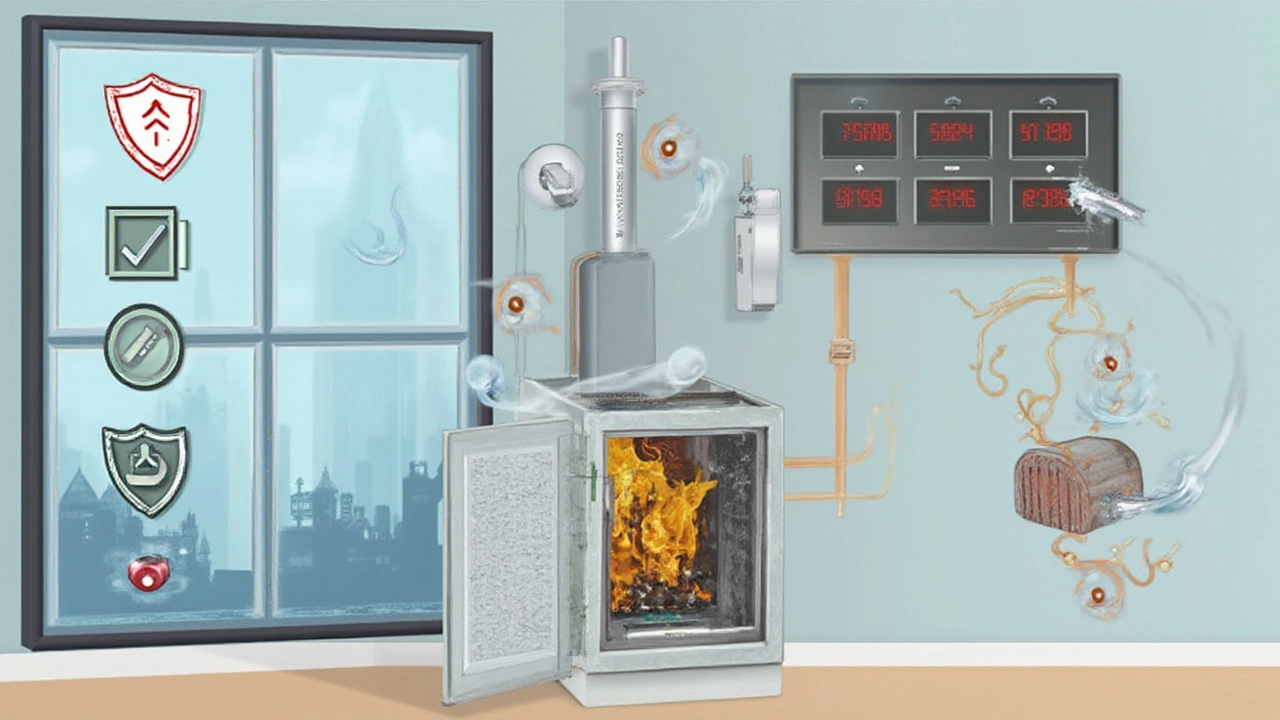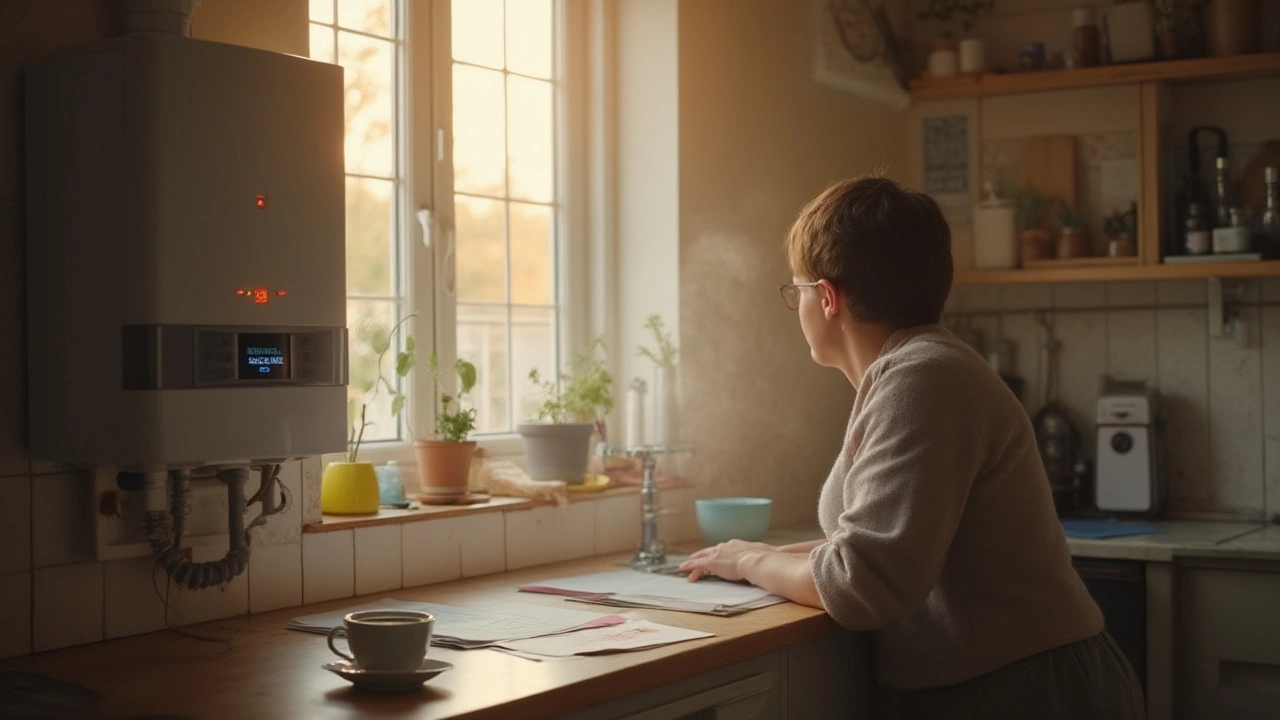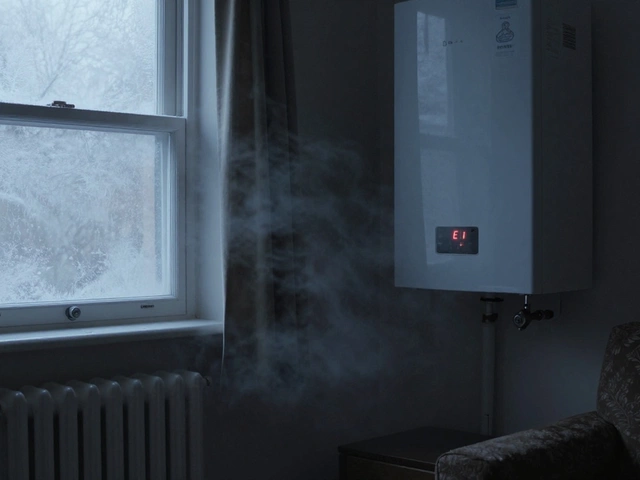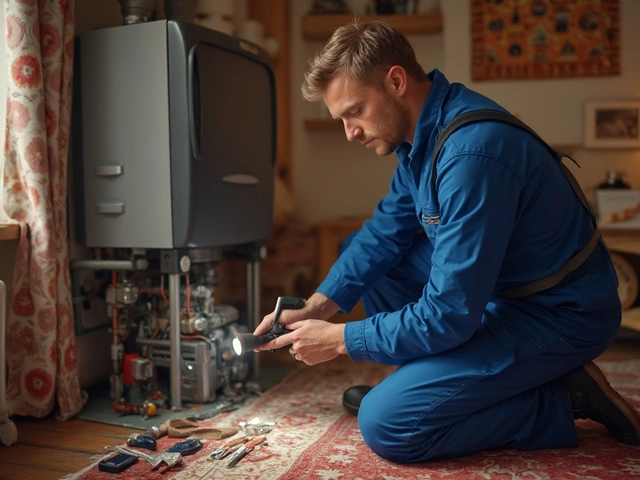Just imagine it’s a bone-chilling winter morning, and you step out of bed expecting a steamy shower only to find icy cold water pouring from the taps. There’s a feeling you can't shake off in that moment—something's off with the boiler. You might shrug it off, convincing yourself it's just a minor glitch. But is it? Spotting the moment when a quirky boiler turns into a real danger isn’t always obvious. A survey from 2024 by the UK Home Safety Alliance found that 35% of people ignore the first signs of boiler trouble, thinking it’ll just sort itself out. That’s risky, sometimes expensive, and often avoidable.
Recognising Warning Signs: What’s Normal and What’s Not?
Most boilers aren’t exactly chatty, but they do have their ways of showing they need help. So, what are the little signals begging for attention? Odd noises, like banging, whistling, or even gurgling, are like your boiler’s SOS. Air in the system, mineral build-up, or low water pressure often set those noises off, and they're not normal. If you’re hearing what sounds like a kettle boiling, there’s a name for that—kettling—and it’s often caused by limescale disrupting water flow. Apart from noise, other warning signs can’t be brushed aside:
- Strange smells: Your boiler should never smell odd. A metallic, eggy, or burning odour points towards gas leaks, electrical problems, or even carbon monoxide risks.
- Pilot light issues: If the flame is yellow or keeps going out, it’s time to act—fast. The flame should be a strong, steady blue.
- Leaks or drips: Water around your boiler isn’t just messy, it’s a clue to internal faults, broken seals, or rusted parts waiting to fail.
- Pressure drops: If you keep topping up the system but pressure plummets again and again, that’s not normal. It’s usually a sign of a leak or a faulty pressure relief valve.
- Radiators not heating up: If your radiators are cold at the top but warm at the bottom, air pockets or sludgy build-up could be to blame. That’s how boilers lose their efficiency and lifespan.
- Frequent reset needs: You shouldn’t need to reset your boiler daily or even weekly. A boiler that keeps tripping needs professional help—not wishful thinking.

Risks of Ignoring Boiler Problems: What’s Actually at Stake?
It’s tempting to postpone boiler repairs if the system’s still plodding along. Out of sight, out of mind, right? But boilers don’t fix themselves. Leaving problems to linger can spiral into bigger, costlier, and more dangerous territory faster than you think. Here’s why you shouldn’t cross your fingers and hope for the best:
- Health risks: Carbon monoxide (CO) is colourless, odourless, and deadly. The NHS reported 167 non-fatal carbon monoxide poisonings involving gas boilers in England and Wales during 2023—a lot of those were from ignored early warning signs. A faulty boiler leaking CO is silent but life-threatening. Symptoms are vague at first: headaches, dizziness, nausea. Sudden flu symptoms for no obvious reason? Get out, ventilate, and call an expert pronto.
- Fire hazard: Faulty wiring or a malfunctioning thermostat has set homes ablaze more often than you’d think. Fire and Rescue Services logged 1,012 home fires linked to central heating appliances in the UK last year. Electrical faults and gas leaks don’t give second chances.
- Major property damage: Water leaks might just seem inconvenient—not dangerous. But let them carry on, and you risk rot, ceiling collapses, black mould, and soaked wiring. Home insurance claims for water damage from burst pipes and failed boilers average £7,800 per incident (UK, 2024 figures), according to the Association of British Insurers.
- Reduced boiler lifespan: Boilers aren’t cheap. But the more you let faults fester, the more you slash the years off its life. A well-maintained boiler should give you 10–15 good years; neglect can cut that by half.
- Sky-high bills: Even small flaws like clogged pipes or poor pressure make boilers gulp more gas to heat your home. British Gas estimates that a struggling boiler can add 25% or more to your monthly heating bill by running inefficiently for just one winter.

Smart Tips to Keep Your Boiler Safe—and When to Ask for Help
Boilers aren’t mystical machines. A bit of regular attention goes a long way, and most people can spot trouble before disaster strikes. So, here’s expert wisdom without the jargon:
- Get to know your boiler: Read the manual. Check the display panel now and then. If the pressure is usually between 1 and 2 bars (as most modern models suggest), you’ll spot weird drops before they become problems.
- Schedule an annual service: Put it on your calendar—don’t wait for sales calls. A Gas Safe Registered engineer should perform a yearly check, clean out the system, test gas levels, and catch potential danger you can’t see. In the UK, Landlords are legally obliged to have boilers serviced annually for tenant safety—smart homeowners follow suit.
- Install carbon monoxide detectors: Place them near your boiler, not on the ceiling, but around head height or according to the manufacturer’s instructions. Replace batteries yearly or earlier if the detector chirps.
- Bleed those radiators: If a radiator is cold at the top but warm at the bottom, air’s trapped inside; use a radiator key to bleed the system. Just have a towel handy—it’s simple and free, and you’ll keep your system running much smoother.
- Check for leaks, even small drips: Catch them fast, and you could save thousands. Look under your boiler and around all visible pipes, especially after high-use periods like chilly weekends.
- Don’t cover boilers or block vents: That walk-in cupboard might seem perfect for laundry, but don’t pile towels or coats around your boiler. It needs space to vent and run safely.
- Call an expert for gas or major electrical issues: If your pilot light is out and you smell gas, or if the boiler’s fuse keeps blowing, shut it off and ring a professional—don’t attempt a DIY solution. Gas Safe Registered engineers are the only people legally allowed to fix gas boilers in the UK.
| Warning Sign | Urgency | Action Needed |
|---|---|---|
| No hot water/heating | High | Check pressure, call engineer if not resolved |
| Leak or pooling water | High | Turn off boiler, call engineer immediately |
| Pilot light out/yellow | Urgent | Evacuate if gas smell, call emergency line |
| Strange noises | Medium | Book a service soon |
| Cold radiators | Low to medium | Bleed radiators, then check boiler |
| Boiler switches itself off | High | Book immediate service call |
Boiler breakdowns are often loud, leaky, smelly, and inconvenient—but rarely truly random. If your boiler starts acting up—making weird sounds, dripping, failing to heat, or flashing warning codes—don’t just cross your fingers. A 2023 survey by Which? found that 87% of people who acted quickly on first boiler faults avoided emergency callouts and the massive bills that come with having no hot water in deepest January. Being proactive doesn’t just keep you warm; it protects your wallet, your home, and your peace of mind. Spot the signs, trust your instincts, and call in the experts when your boiler hints it might be more than just a chilly spell.




